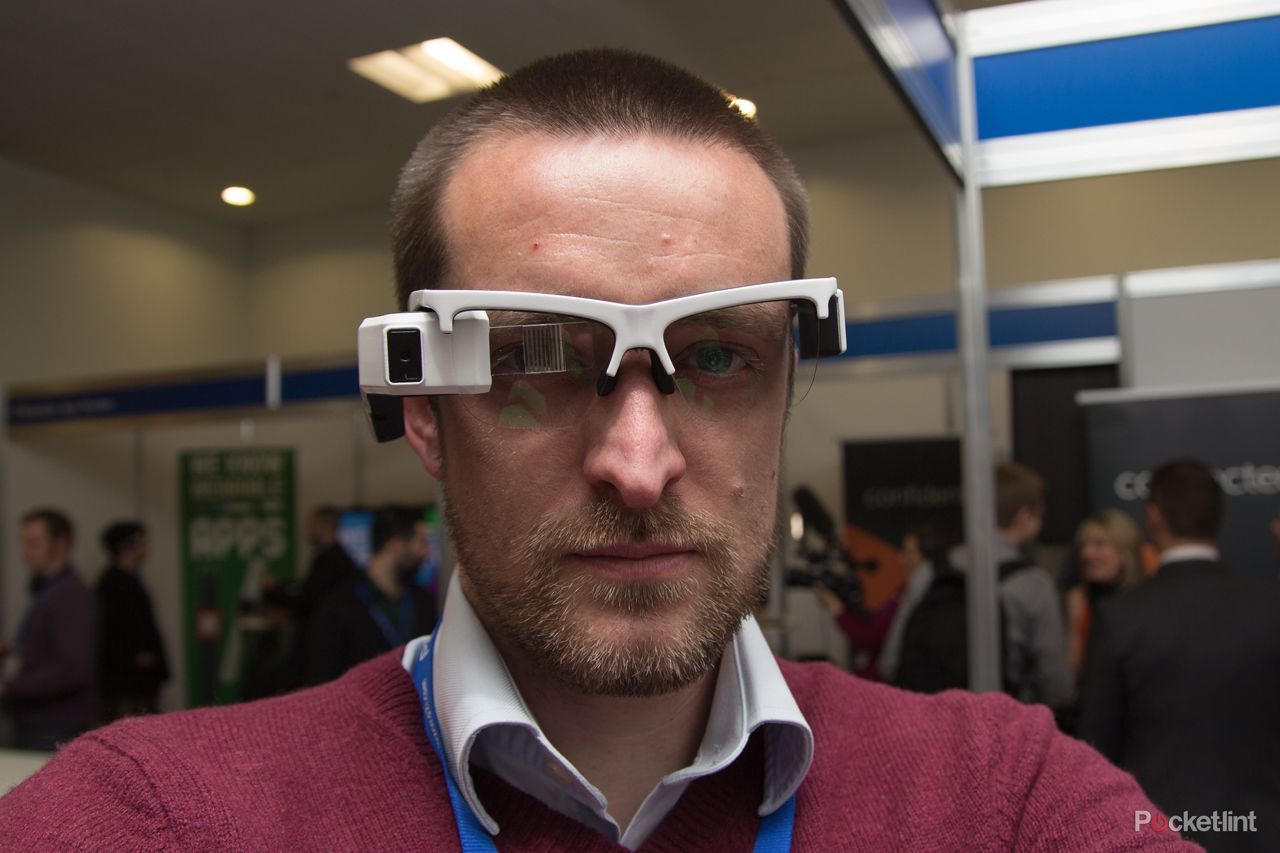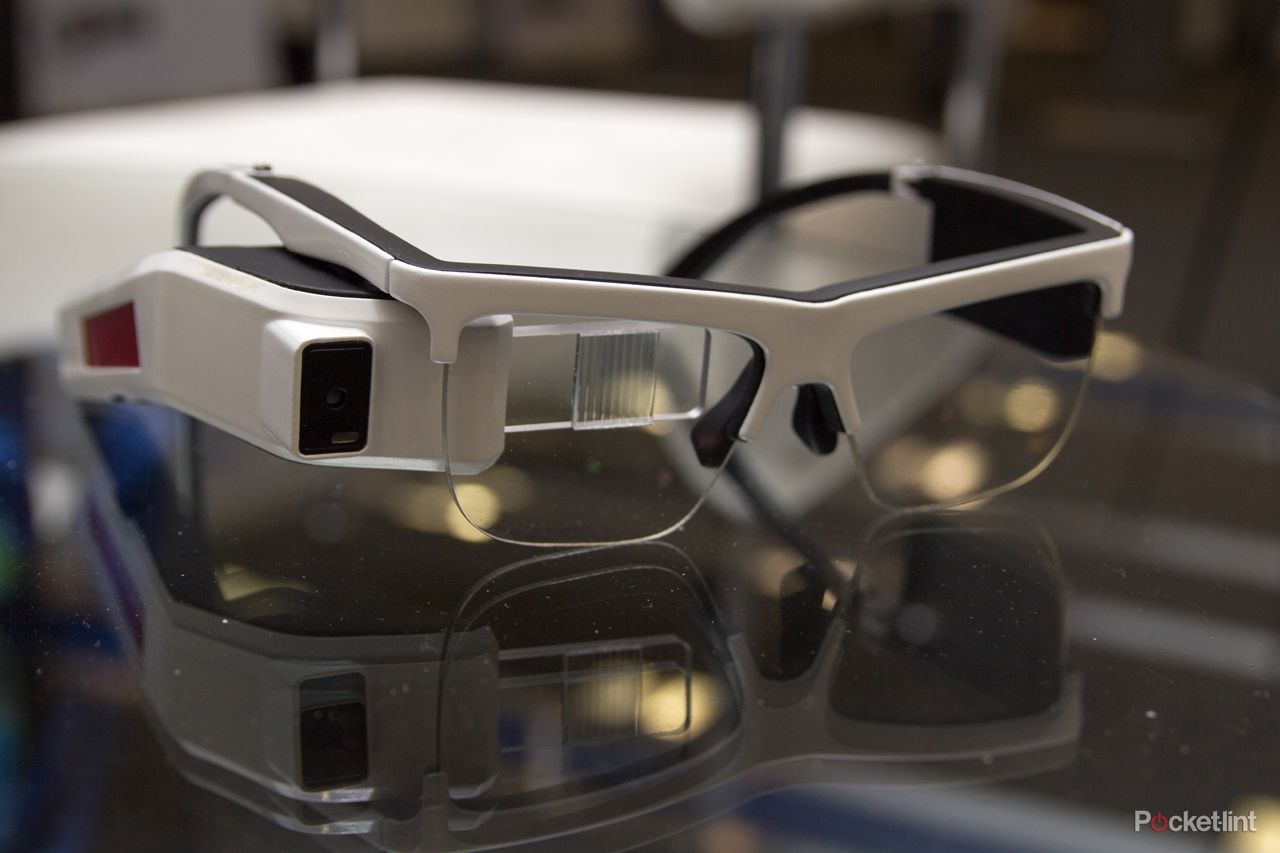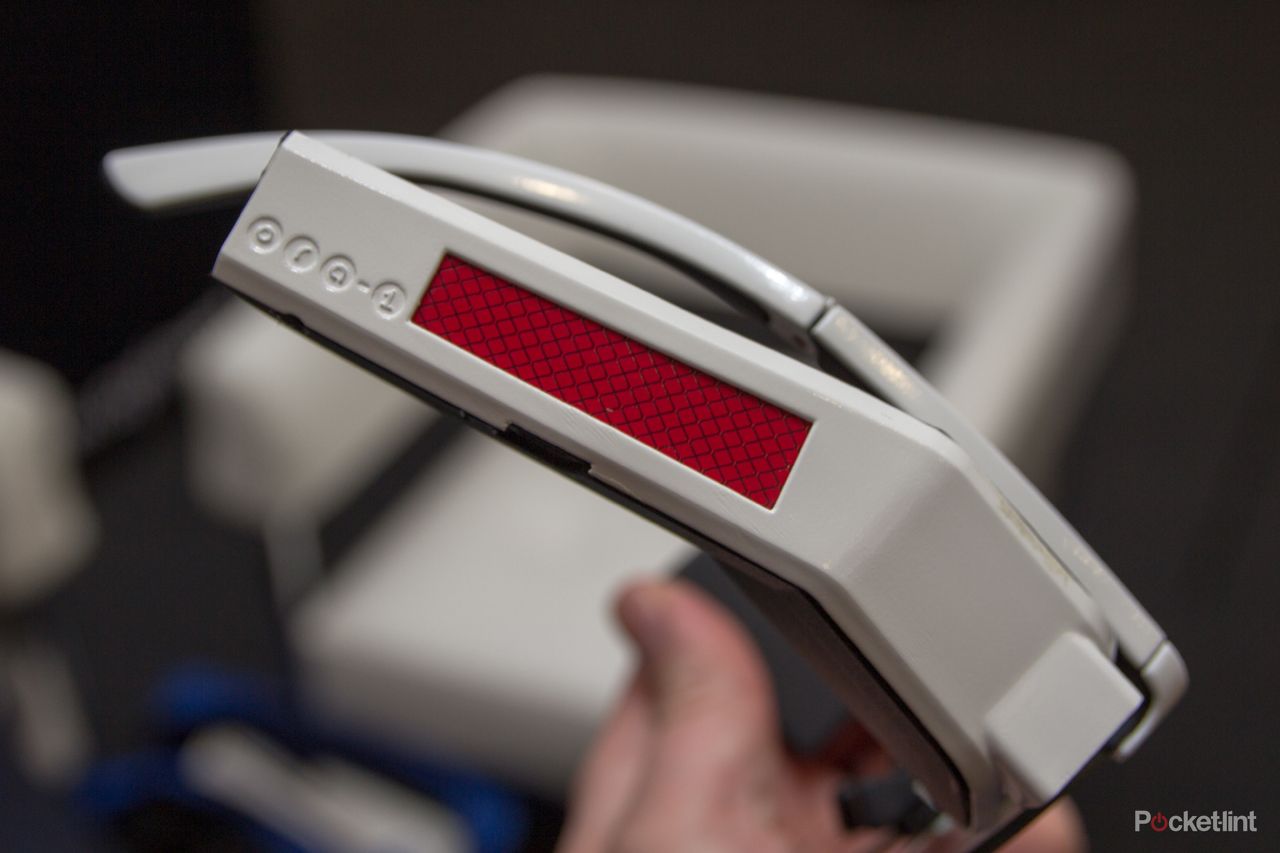The Optinvent Ora smartglasses offer a full Android 4.2 platform that you can wear and are now available for pre-order at €699, shipping in May.
Optinvent's glasses are independent, so rather than being a slave to another device, can be entirely autonomous. There's a 1.2GHz dual-core processor on board, 1GB of RAM and 4GB of internal storage, as well as Wi-Fi and Bluetooth connectivity. There's also a microphone and 3.5mm headphone socket for an earpiece and the sample we tested had Skype installed.
On the face these glasses feel a little heavy, as the "Flip-Vu" arrangment means that most of the tech seems to be bundled into one side of the device. It's an articulated arm so you can choose the have the display in your eyeline or below it, looking through Optinvent's Clear-Vu display.
Because if the way this system works, you can't change the focusing of the image you see. If you have any problems with your eyes, you need to insert corrective lenses on the inside, which add to the bulk a little.
However, the ability to flip the display down is useful, because you can go about your business as normal and glance down when you need the information, perhaps to refer to instructions on a task, or a map.
Yes, there is GPS included as well as a range of motion sensors. The battery life is said to last for 4 hours in intensive use, or 8 hours if you're using the Ora more casually.
The camera on the front is 5-megapixels, offering 1080p video capture with an autofocus lens.
Interaction takes place thorough a touchpad on the side, letting you move a cursor around the UI on the display, tapping to confirm actions. It will also support voice controls.
However, the real pitch of the Optinvent Ora is as developers wanting to create apps for Android glasses. Optinvent said to us several times that it isn't a software developer, so it's really in the hands of devs to make the apps that will exploit the hardware offered. The smartglasses will come with an SDK to make that happen.
Optinvent also told us that it is aiming to have smartglasses on the market by 2015 pre-loaded with apps, offering more of a consumer proposition.
The announcement of Google's new Google Wear platform might upset the appeal of the device, however, as the new move from those at Mountain View is sure to attract developers.



